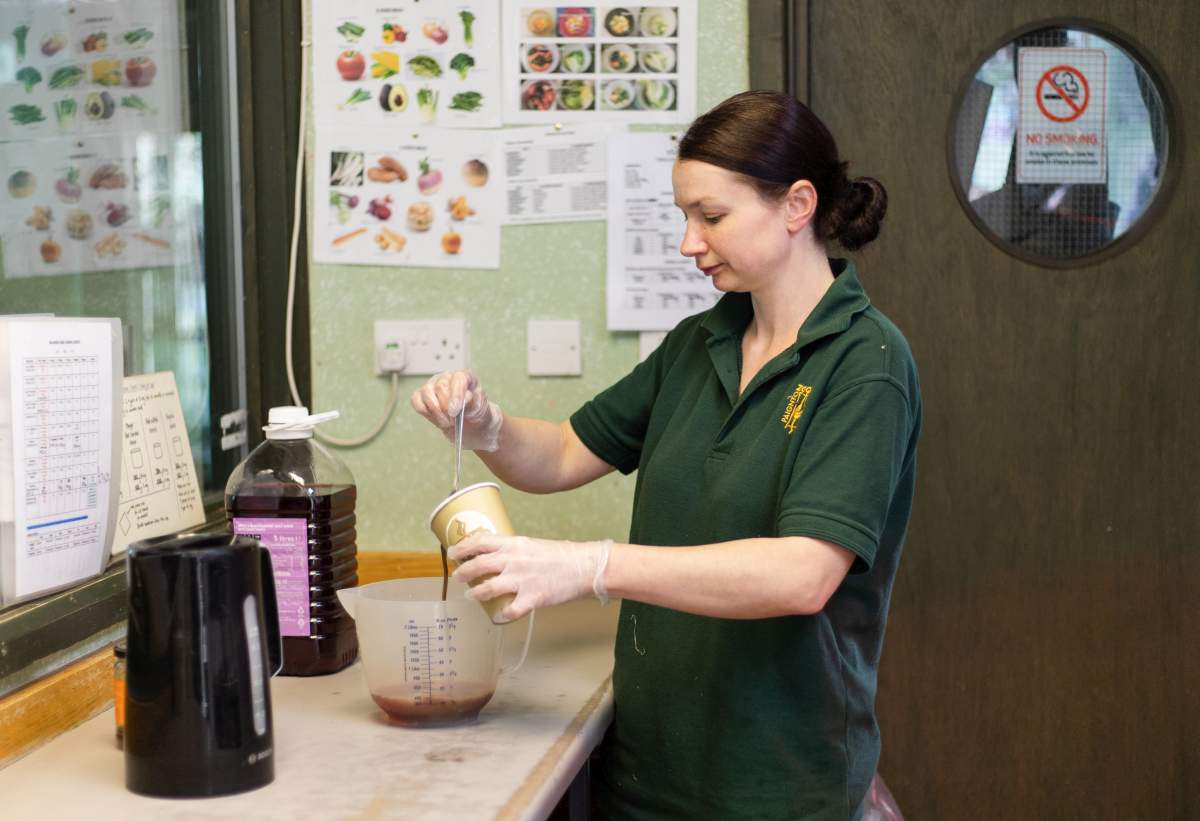Here’s a story guaranteed to put you off your Easter eggs – a gorilla with constipation is being treated with what zoo keepers have dubbed poo-shakes…
Pertinax is one of the elder statesmen of Paignton Zoo in Devon. The 36-year-old Western lowland gorilla has long been dogged by constipation; animal experts decided on this move after oranges and even a course of tinned prunes failed to bring relief.
There are some good scientific names for the technique: microbiome restorative therapy; faecal transplant; transfaunation. It’s used on humans, on farm animals and is even being used to help save endangered species. Call it what you will, it’s still not something you want to dwell on at mealtimes…
Pertinax weighs-in at a healthy 200 kilos, achieved on a vegetable diet. The old boy is effectively retired and living separately from the Zoo’s three boisterous youngsters, Kiondo, Kivu and N’Dowe. One of his keepers, Gemma, says: “He’s always had a problem with constipation. He eats the same diet as the others and lives in the same environment, but they poo normally and he doesn’t.“
Zoo research officer Dr Holly Farmer explains the aim of a faecal transplant: “Sharing a healthy animal’s gut flora through a faecal transplant can improve physical health and an animal’s temperament. We hope that micro-organisms from the stomach of a healthy gorilla will help sort out Pertinax’s issues.”
Transfaunation is a technique commonly used to treat indigestion in dairy cattle. It involves transferring a range of micro-organisms including bacteria, protozoa, fungi and archaea from the rumen (first stomach) of a healthy animal to that of a sick one. Meanwhile, scientists are looking at how faecal transplants might help save the koala from extinction by changing its bacterial flora and extending the range of foods different groups are able to digest. In addition, vets prescribe faecal transplants for domestic pets with a variety of intestinal problems.
Poo from all three of the other gorillas – Kiondo, Kivu and N’Dowe – was used. Keeper Anne Lunt mixed it with warm water, apple and blackcurrant squash and honey to make the unappealing cocktail – and was both pleased and amazed by Pertinax’s response: “He drank three or four paper cups – he seemed to like it!”
Results can be achieved with one dose, though sometimes more are required. After a few days, keepers noted very promising improvements. They will continue to monitor Pertinax closely, but the technique does seem to be working.
The charity’s bachelor group of Western lowland gorillas – a Critically Endangered species – plays a vital role in international gorilla conservation, providing somewhere for young males to grow up in a social environment. Some may move on to be the dominant males in bachelor or family groups in other collections as part of the European breeding programme. Paignton Zoo
Paignton Zoo is a registered charity. For more information go towww.paigntonzoo.org.uk or ring 01803 697500.
You can join us on our social media pages, follow us on Facebook or Twitter and keep up to date with whats going on in South Devon.
Got a news story, blog or press release that you’d like to share or want to advertise with us? Contact us




























